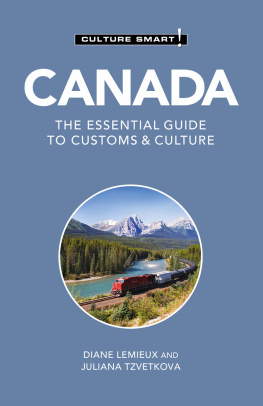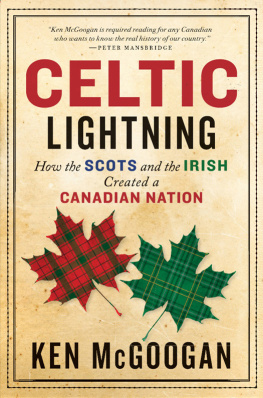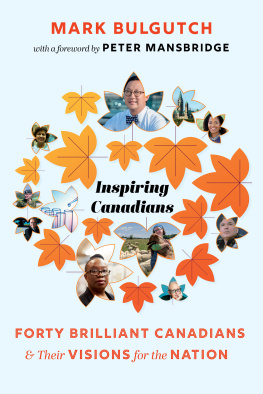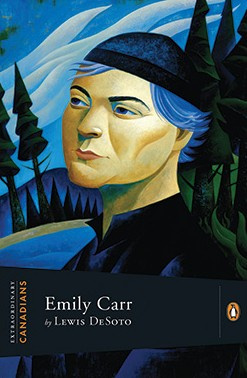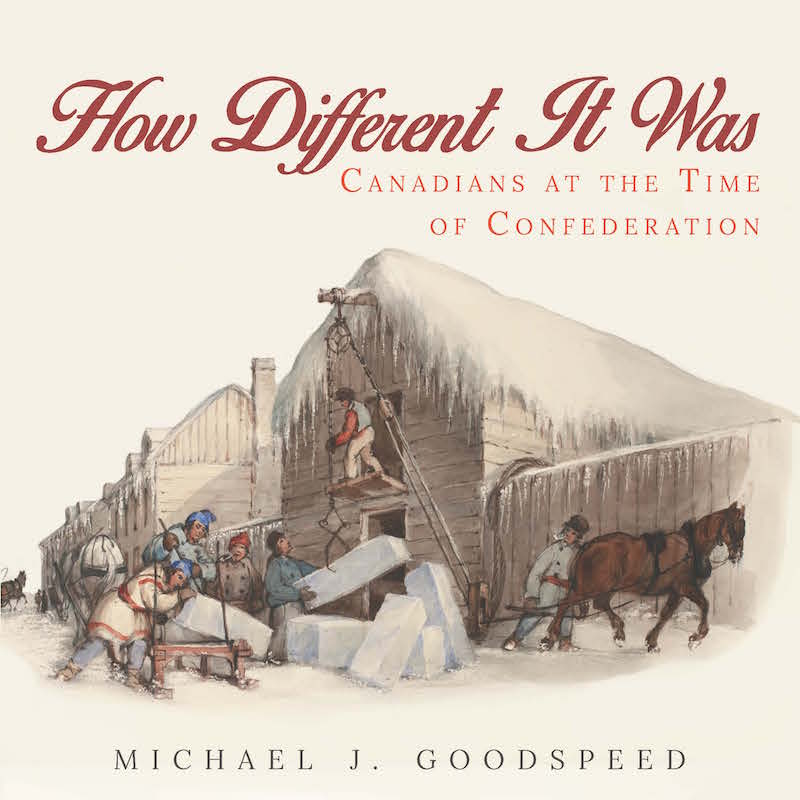For my grandsons, Euan Tomos Goodspeed and Jovan James Lazic: may their Canada be tolerant, free, just, and prosperous.
Contents
Introduction
Chapter One Background to a New Nation
Chapter Two The Victorian Outlook
Chapter Three Turmoil in the Rest of the World
Chapter Four The Regions and First Peoples: Quebec
Chapter Five The Regions and First Peoples: Ontario
Chapter Six The Regions and First Peoples: The Atlantic Provinces
Chapter Seven The Regions and First Peoples: The West and the North
Chapter Eight The Immigrant Peoples: The Irish
Chapter Nine The Immigrant Peoples: The Scots
Chapter Ten The Immigrant Peoples: The French
Chapter ElevenThe Immigrant Peoples: The English
Chapter TweleveThe Immigrant Peoples: The Eras New Minorities
Chapter ThirteenRural Life
Chapter FourteenUrban Life
Chapter FifteenDomestic Life
Chapter SixteenAttitudes and Beliefs
Chapter SeventeenInstitutional Life
Chapter EighteenEducation, Media, and the Popular Arts
Chapter NineteenCharacteristics and Identity
Acknowledgements
Notes
Bibliography
Image Credits
Introduction
W alter Ferguson was a farmer. He was in many ways like most other British North Americans in 1864. He had sixty acres of fields and a wood lot on the Rustico Road north of Charlottetown, Prince Edward Island. Like most of his neighbours in the last days of that sweltering summer, he had no intention of missing the biggest show in decades. The Olympic Circus from Philadelphia was in town. The show was advertised as having acrobats, trick riders, clowns, dancing dogs, and performing monkeys. Walter had never seen anything like it, and he was thrilled that his family would have the chance to see such an extraordinary performance. The only other circus to come to Prince Edward Island had visited over twenty years before, and in those days his family couldnt afford to take the time off or pay the price of a ticket.
Like most Islanders, seeing the circus meant a small financial sacrifice on Walters part. The Fergusons werent poor, yet Walter knew that if he took the whole family, hed have to find the money somewhere which was fine. His old coat could probably last another winter.
At nine that September morning there wasnt a cloud in the sky. It had been a hot summer, and today was going to be another scorcher. Walter straightened his draft mares handmade harness and bellyband and cinched her securely to the farm wagon. If it got too hot hed have to stop and water the horse half way to town. Even with the water stop, they would get to town with a little time to spare. With everything ready, Walter helped his wife and the remaining five children up onto the open wagon.
The Fergusons were frugal people. Early this morning, Walters wife, Ruth, had packed their lunch in a wicker basket. The road to Charlottetown was heavily wash-boarded at this time of the year but with luck, the wagon shaking from the dirt road wouldnt break the wax seal on the two jars of glass-stoppered pickles. It would be a shame to have their sandwiches ruined. The damp tea towels that had been wrapped around the pickle jars would help a little to protect them. The cold tea made the night before was safely corked inside thick glass bottles. It was going to be a wonderful day.
The Olympic Circus took place in Charlottetown at the same time as the conference for the union of Britains North American colonies. Like most Canadians, Walter had only a passing interest in grandiose politics of the kind that involved the politicians in Charlottetown. As things turned out, the conference passed without much to-do. The politicians worked out the conditions for what would eventually become a united Canada, and Walters family loved the circus.
Walter would not find himself a Canadian citizen until 1873, when P.E.I. finally joined Canada. By then, the country stretched from the Atlantic Ocean to the Pacific and, while he had a great deal in common with his compatriots in the other provinces, the regional circumstances of each of the future provinces differed in many ways. And although conditions varied in each region, each colony shared a common economic rationale for joining a Canadian union: by themselves, the regions were just too small to exist independently. They needed one another, and their differences were not nearly as large as the ones that existed between themselves and the Americans or British.
Canadians differed from Britain and America in many ways. Canadian society varied in terms of class, its economic basis, regionalism, cultural outlook, its security issues, and its levels of urbanization and industrialization. Canadians treated minorities differently than the British and Americans. Canadian attitudes to the arts, public institutions, education, the role of tradition, and the nature of civil society were all substantially different than those of the British and Americans.
During the Confederation decades, Britains North American colonies were outwardly quiet, seemingly stable, and relatively peaceful. Although the American economy was booming, America was reeling from the human and material costs of a devastating civil war, as well as struggling with massive economic reconstruction. The United States had already eclipsed Britain in terms of population and manufacturing output, while the British mother country, on the other hand, was, throughout the Confederation era, newly industrialized and caught up in the fervour of the fastest and largest imperial expansion in history. Amongst all three countries there were shared similarities, but there were also massively dissimilar features and circumstances at play.


